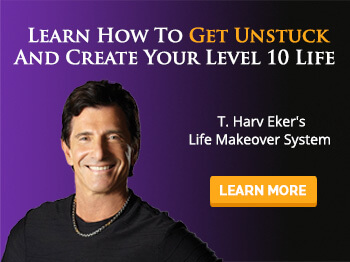“Can you hear me now? Good!”
I’m a marketing fanatic as many of you know, so I try to appreciate great ideas communicated brilliantly when I see it. Verizon’s cell phone television ad campaign articulated and took advantage of a simple but powerful truth— with other cell phone carriers, lots of people were experiencing the frustration of dropped calls in the middle of important conversations.
You’ll never have to worry about that with us, Verizon basically said, with commercial after commercial of the same Verizon field test guy in the most remote areas of the country still being heard, still good.
The number of Verizon subscribers jumped from 32.2 million at the start of that campaign in January 2002 to 43.8 million in two years. They also poured billions into their network infrastructure; continually investing in what they said they would deliver on—fewer dropped calls anywhere.
I’m not a Verizon spokesman or advocate, I just use the example to illustrate the power of a simple message communicated to the tune of more customers, and more money. The money is in the message. Marketing and promotion is how you get customers to your business, and customers are how you get more money.
This is exactly the problem most businesses have, though—communicating clearly and concisely what they do and how it benefits their potential customers. It’s one thing for you to know what you do, who you help and how they benefit, but it’s quite another thing for other people to know the same thing.
One of the most essential skills you can have is the ability to articulate what you do in a powerful and concise way. Clarity leads to power, for both you and your customers. It empowers them to understand exactly what you can do for them and why they should buy from you. The reason most people fail in business is that they have a very poor message.
Your message has to cut through like a knife to the core. You have to be very selective and specific about what you say. You might have lots of different things to offer, but you can’t put them all in a 30-second sound bite. Don’t try to be all things to all people. Keep it simple. Less is more. You want to leave people saying, “That sounds interesting.”
What’s your “thumbprint”? What’s unique about you? Why should someone do business with you versus the person next door?
If you don’t have this, you are chopping your income in half. As soon as you have a strong sound bite, and deliver on your promise, you can double your income.
The only way you'll ever know what works is to try something out and see if it works. You always test first, and then you sprint out of the gate when you have a winning proposition.
How about you? Have you experienced a difference in success when you changed your persona—your “calling card” so to speak—as you sold yourself or a product? What was it that specifically made a difference? Was it how you perceived yourself or how others perceived you? Let us know in the comments below!
To Your Success,

There are another three components that are critical to website success—besides avoiding the pitfall of focusing on product before knowing who your target market is and where they hang out.
The first is help, don’t sell. By helping you will sell. The second is build credibility and rapport through educating.
You’ll go to a sloppily put-together webpage and get these annoying boxes that come up asking if you want something you weren’t thinking about before but are certainly too annoyed by now to entertain considering.
When you’re marketing online, remember that people don’t shop online. People research online.
Most people go online for research on how to buy a new car, or increase their business, or to learn about raw foods, or whatever it may be. So your website has to be designed around helping, not selling. Informing, revealing, educating.
If you sell, you will fail. By helping you build credibility and rapport. People will believe in you, and because of that, you can show them the value in your product or service. And they will buy from you. It’s absolutely critical to what you do online.
Everything on your website—every button, every graphic, every word you put on the page has got to be built around helping, not selling. Make it most appealing to researchers, not to shoppers. Save the two-page sales letters and the paper. Whatever it is you’re the expert in, whatever you do, they want more information. They’ll call you, email you, or order right off the website.
The mindset of the online researcher-pre-shopper is, “What’s in it for me?” That’s the first question you want to answer on your website. If you can’t answer that question at the top of your webpage, change it or you’re going to fail. Why should anybody stay there? They’ve got hundreds of websites to go look.
Don’t have a mission statement at the top of your page talking about who you are, what you do, how great and fantastic you are, and how you have a Ph.D. Nobody cares about that.
They care about what you’re going to do for them. That doesn’t mean not making available credentials and testimonials, but it all goes back to writing headlines—something that will make them stay. Suck them in. Make them feel like they’re going to be learning something they didn’t know before.
Nearly the same marketing rules still apply. Walk a mile in your prospects’ shoes. Empathize with them in plain language. Pharmaceutical ads are written and spoken so that children understand them. Use simple and/or precise language (depending on the uniqueness of your market) as your keywords—the words prospects would be typing into Google or Bing to find you. If you’re selling cow juice but everyone calls it milk, you better call it milk too because people don’t search for cow juice, they search for “milk.” If you get stuck, there are writers at reasonable prices who can do it for you.
It’s not how well you know your product that is going to determine the level of your sales and your success; it’s how well you know your customer, so that you’re ready for them when they visit your web page.
Next month we’ll cover that last key to success in building an online business—having the best possible sales process you can have—one that costs you nothing and boosts your profits!
https://bit.ly/UltimateInternetBootcamp
Each time I am on stage or working directly with my students in my mastermind groups, I tell them, “Don’t just take my word for anything.” And I mean it. Not everything is always right or wrong, and experience is always the best teacher. Anything we learn has to put it to the test for ourselves. However, I will say that what I’ve learned has worked for me, and it’s worked for thousands. I am sure, especially during this economic challenge, that you have seen “financial gurus” promising you secrets on how to change your financial situation instantly. What makes me any different than the others? Why should anybody listen to me?
It’s not like I had some special gift that got me to where I am today. Like some of the best things in life, the turning point in my financial destiny came to me completely out of my control. See, after yet another failed business venture, I was forced to move back into my parents’ basement. A visiting friend of my father’s—a very rich friend—took pity on this 20-something still living with his folks and gave me advice that literally changed my life.
He said, “If you thought the way rich people do and did what rich people do, do you believe you could become rich too?” I probably hemmed and hawed some kind of ‘I guess’ response, and he added, “Then all you have to do is copy how rich people think.”
The missing ingredient in my bid for financial success was two-fold. Not only was it knowing what other successful people know, but it was also knowing what was going on in my own mind.
Without examining our true beliefs, sometimes we can block our own success and not even realize it. For me, even though I said I wanted to be rich, I had some unconscious worries about it. I was afraid that I might fail, or even worse, succeed and then lose it all, then look like a fool.
Eventually, I became aware of how my own thoughts were holding me back from wealth, and more importantly, I learned several powerful ways to “unlearn” what we’re typically conditioned to think when it comes to money, so I would think in the same ways that rich people do.
How many times have you challenged your own thoughts and beliefs about money, or about who you really are for that matter? How do you really feel about yourself? Do you actually believe that you deserve to be wealthy? Our personal blueprint ends up determining our money blueprint, and we need to understand these influences before we can begin transforming into a millionaire mindset.
I believe our lives are shaped by defining moments and the decisions that we make from them. From one embarrassing yet insightful incidence, I made a decision to learn everything I could about the psychology of money and success. My results speak for themselves.
It’s true: rich people really do think differently than most. To make that transition, you have to let go of some of your old ways of thinking about money and about yourself, and adopt some new thought patterns. In other words, you need to learn how to think like someone who is rich.
It really is that simple. If you think like rich people do and do what they do, chances are you’ll get rich too!
What are we really doing when we “put all our cards on the table?” What cards? What table?
There was a fad not so long ago … maybe it’s still going on today … but Texas Hold ‘Em Poker was the rage. Who knew the difference between a “River” and a “Flop” before about 2003?
In Poker there’s predictably a point in the game where you’re holding what you think is a killer hand. You might have to “up the ante” because somebody else is thinking the same thing, then those who haven’t folded put their cards on the table and let the chips fall where they may.
The expressions that come from card games serve as reminders on strategy, guessing, “Fake it ‘til you make it,” when not to push your luck and when to say, “What the hell, I’m all in!” Going after those things that we want means taking risks without really knowing how the game will turn out.
But seriously, there’s nothing worse than playing a game of poker, getting a great hand, then upping the ante only to find out somebody else has an Ace to your King, or a Straight Flush to your Full House. But will a big loss be enough to keep you from throwing your cards on the table again? I mean a real kind of loss, like an investment gone sour or a business that took a big hit in the recession?
Your cards are going to change from game to game, as will the amount of chips you win and lose. But when we’re talking about laying our cards on the table, we gotta think about that table too.
If you’re playing on a three-legged table, well … you may still win from time to time, but ultimately that table isn’t gonna hold up over the long run, yes or yes? Your table’s got to be as strong as the cards you’re holding.
Play your cards if that’s what makes sense, but you have to be playing from a strong foundation to begin with—your table has to be sturdy enough to support a great hand to play when its time to play it. That support comes from the belief you have in yourself as well as your ability to play your cards to maximum effect. Those beliefs end up being the table’s legs, as my good friend Tony Robbins used in a metaphor. The more support you have in your legs, the stronger the table. In other words, start the game with self-supporting beliefs.
We can develop beliefs around anything if we find enough references to support it, yes? If we’re talking about financial success, you have to believe that you can or deserve to be a financial success. You have to visualize being there, like you belong there. The roots of our beliefs go deep.
What do the legs of your table look like right about now? What support can you honestly give yourself that—no matter what cards you happen to be holding at the time—you can lay them out with pride and confidence that you actually stand a chance of winning? Is one of your legs ‘persistence,’ or ‘willing to try new things’; or creativity, leadership, influencing? Whatever these legs are, they need to be true for you, and only you know that. If you don’t, asked trusted loved ones for support—then stand up!
You have to know when to hold ‘em, fold ‘em, go for it and call it a day, but know what legs you’re standing on, too.





